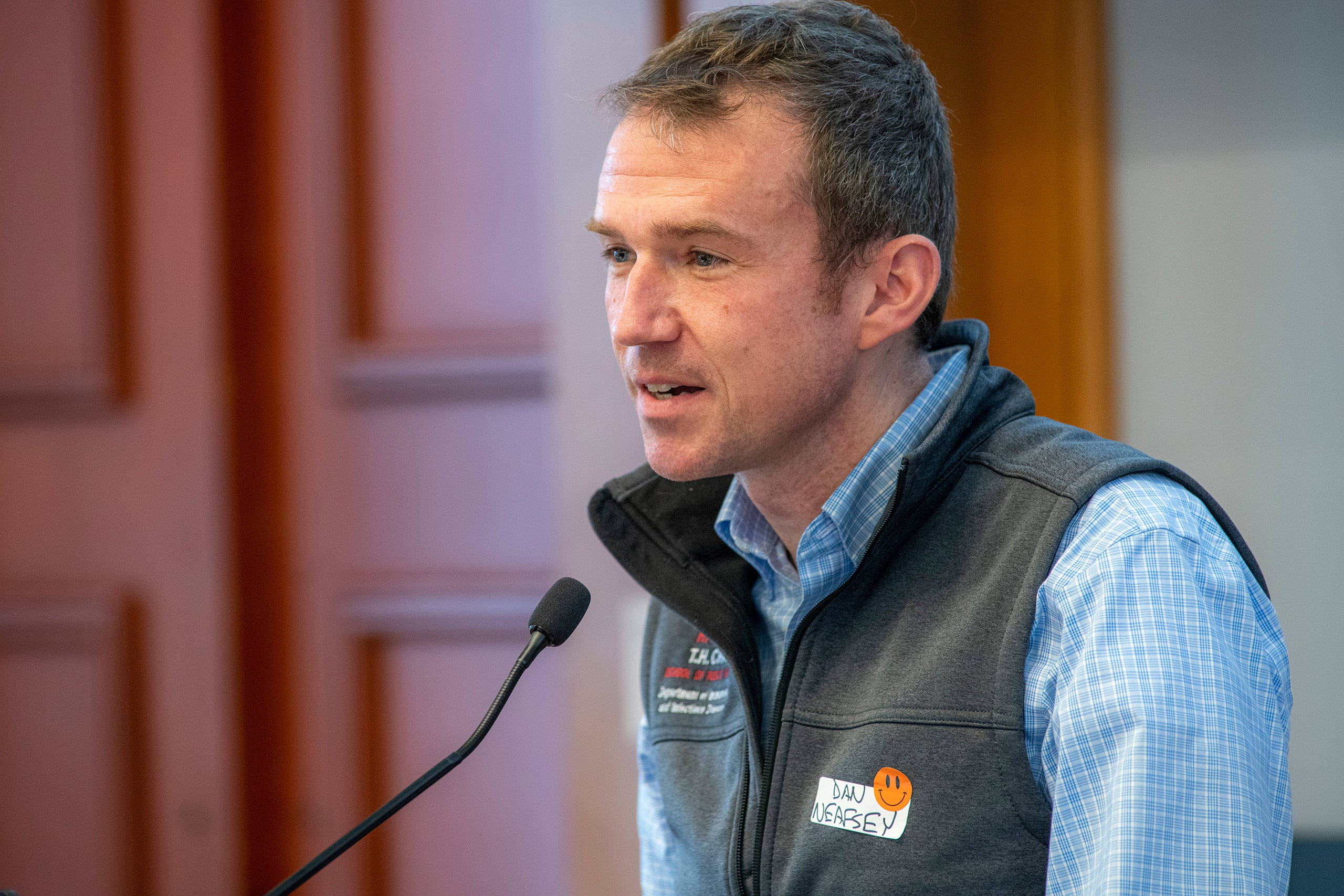Neafsey Lab
The Neafsey Lab uses genomic, transcriptomic, and serologic data to make significant scientific discoveries in malaria and other vector-borne diseases. By studying the genetics of microbes, their carriers (like mosquitoes), and their human hosts, the lab develops new molecular and bioinformatic tools that support public health efforts. Their research helps improve treatments and deepens our understanding of how these diseases spread and evolve.
665 Huntington Avenue
Building 1, Room 103
Boston, MA, 02115

Genomic Epidemiology of Malaria
About the Neafsey Lab
The Neafsey Lab uses cutting-edge genomic, transcriptomic sequencing, and serologic data to explore vector-borne infectious diseases, with a primary focus on malaria. Our research integrates insights from population genetics and molecular evolution to investigate complex interactions between pathogens, their vectors, and hosts. Through innovative approaches, we aim to uncover new biological insights, enhance therapeutic effectiveness, and develop advanced tools in molecular biology and bioinformatics that support global public health.


Support Harvard Chan School
Every gift contributes to our mission of building a world where everyone can thrive. To learn more about how you can support The Neafsey Lab, please contact Carter Brown.
What We Do
Malaria represents a co-evolutionary triangle between parasites, vectors, and human hosts. The evolutionary adaptations that impact disease epidemiology leave a signature in the genomes of each member of these triangles. By applying population genomic methods, and generating other data such as transcriptomic and serologic profiles, we can better understand the basic biology and epidemiology of vector-borne diseases, and apply that knowledge to their control.
Featured Publications
- A Short-Read Amplicon Sequencing Protocol and Bioinformatic Pipeline for Ecological Surveillance of Dipteran Disease Vectors
- Advances and opportunities in malaria population genomics
- Declines in prevalence alter the optimal level of sexual investment for the malaria parasite Plasmodium falciparum
- Design and implementation of multiplexed amplicon sequencing panels to serve genomic epidemiology of infectious disease: A malaria case study
- Genotypic analysis of RTS,S/AS01E malaria vaccine efficacy against parasite infection as a function of dosage regimen and baseline malaria infection status in children aged 5–17 months in Ghana and Kenya: a longitudinal phase 2b randomised controlled trial
- NEW PREPRINT! Contrasting genomic epidemiology between sympatric Plasmodium falciparum and Plasmodium vivax populations
The Studio: Combatting the global threat of dengue fever
Featuring speaker Daniel Neafsey





